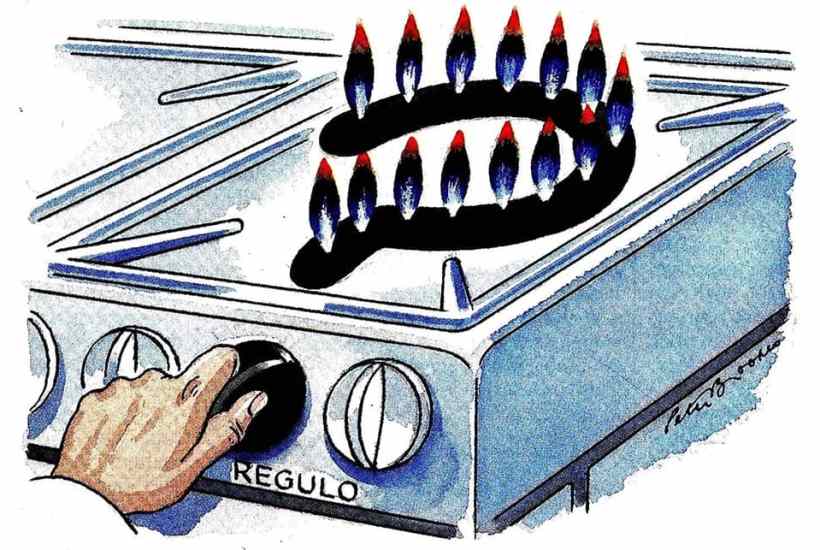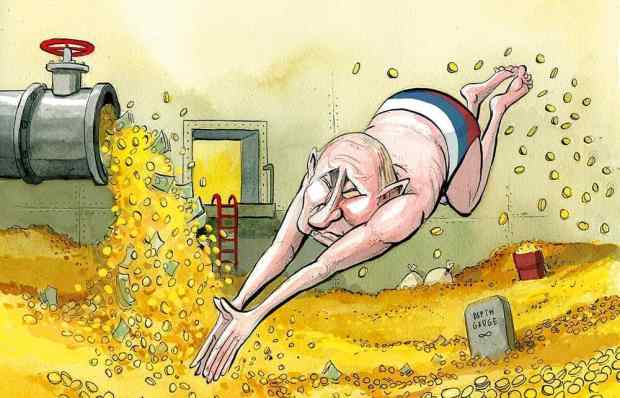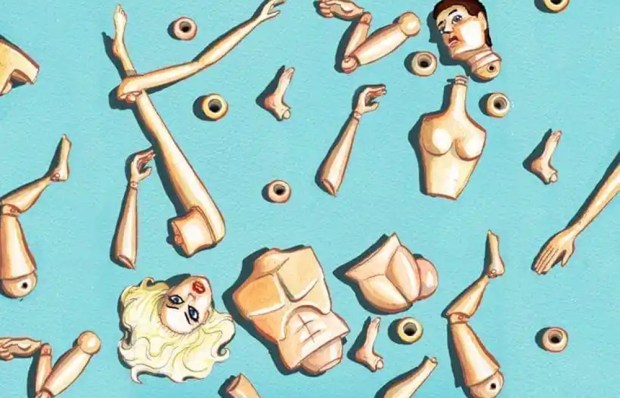When Russia invaded Ukraine in February, German protesters lined the streets holding placards saying ‘Better a cold shower than Putin’s gas’. Their resolve was soon to be tested: energy costs surged and Berlin’s longstanding policy of relying on Russian gas started to cost the country dear. Germany set itself the hugely ambitious target of having its gas stores 95 per cent full by November, a policy that remained even after Moscow turned off the Nord Stream pipeline. It seemed a near-impossible target.
But this target has now been met ahead of schedule. German gas usage is down by about a third after major changes to industry. With the panic over, the price of commercial gas contracts – in Germany and Britain – has now fallen to levels last seen in the spring. Gas futures are trading at about the same level as before the Ukraine war, a time when it was assumed that Russian gas would keep flowing for ever. On the European spot market, gas prices briefly fell below zero, with traders actually paying to get rid of their excess. Some liquefied natural gas tankers are reported to have changed course and set sail for Asian markets instead.
The problems with energy are not, of course, over. Household bills will have to cover the gas contracts bought when prices were surging, so it will take some time for all this to translate into lower bills. A harsh winter may deplete Europe’s storage levels, sending prices higher again. For now, though, crude oil prices are falling (currently 25 per cent below their peak) along with the cost of other commodities such as aluminium, steel, gold, cotton and wheat – all of which will lower inflation.
This could be good news for bad reasons: the combination of war and recession is taking the heat out of the global economy. Rising interest rates, for example, mean fewer new houses are being built in the United States, reducing the demand for construction materials. This lowers the global cost of wood (a crucial raw material in the construction industry), with prices now at levels not seen since the lockdowns, let alone the Ukraine war.
All told, the coming winter looks less terrifying than it did in August. Even if Liz Truss had not budgeted for a £10 billion-a-month fuel bill subsidy, the cost of heating the average house would be nowhere near the £6,000 a year that some predicted. Third world countries, which have been hit so badly by the drawbridge-up mentality of world lockdowns, are also seeing some respite. The World Bank reports that food prices have already fallen noticeably from recent record highs.
Market forces have done their work, encouraging production and discouraging use. The Energy Price Guarantee is to be reassessed by the government in the spring. It is possible that it will cost far less than the £150 billion estimate – with prices falling, the scheme could cost next to nothing to deliver.
While wage rises are not keeping up with inflation, far fewer people are losing their jobs than in previous downturns. There is little risk of employment deserts of the sort once seen in Britain’s industrial towns.
Rishi Sunak, in short, has a better economic hand than the one dealt to Liz Truss. The country had been braced for a cost-of-living calamity and there will still be hardship, but it will not be on the scale initially envisaged. This may help Sunak politically, because the expectation of disaster will make it easier to sell tough but necessary reforms.
Sunak has a deep knowledge of how markets function – he would not have enjoyed the success he did in his previous career otherwise. But he may also come to benefit from good luck just as Truss suffered from the reverse. Economic crises tend to run their course. Growth will return, even if not quite on the timetable that the former chancellor Kwasi Kwarteng hoped for.
Inflation is set to remain painfully high for some time, meaning very difficult pay negotiations between workers and employers. The average salary in Britain may, at the end of all this, have been stagnant for two decades, which would be an appalling indictment of general economic management.
As chancellor, Sunak had several ideas that were thwarted by 10 Downing Street: not just in promoting growth but cutting spending. He is mindful of the unfairness of the state pension’s triple lock, of the waste in HS2 and of the unaffordability of Boris Johnson’s plans to subsidise care homes, as well as the handing out of millions of pounds in scientific research grants without any expectation of what the taxpayer would get in return. There are plenty of Johnson-era splurges that can still be undone that would lift the pressure to raise taxes and further burden the economy.
It is easy to be gloomy, given the Westminster tragicomedy of the past few weeks. But the essential ingredients for an economic recovery are already there – if Sunak and his new team are prepared to do what it takes to let it happen.
Got something to add? Join the discussion and comment below.
Get 10 issues for just $10
Subscribe to The Spectator Australia today for the next 10 magazine issues, plus full online access, for just $10.
You might disagree with half of it, but you’ll enjoy reading all of it. Try your first month for free, then just $2 a week for the remainder of your first year.














Comments
Don't miss out
Join the conversation with other Spectator Australia readers. Subscribe to leave a comment.
SUBSCRIBEAlready a subscriber? Log in